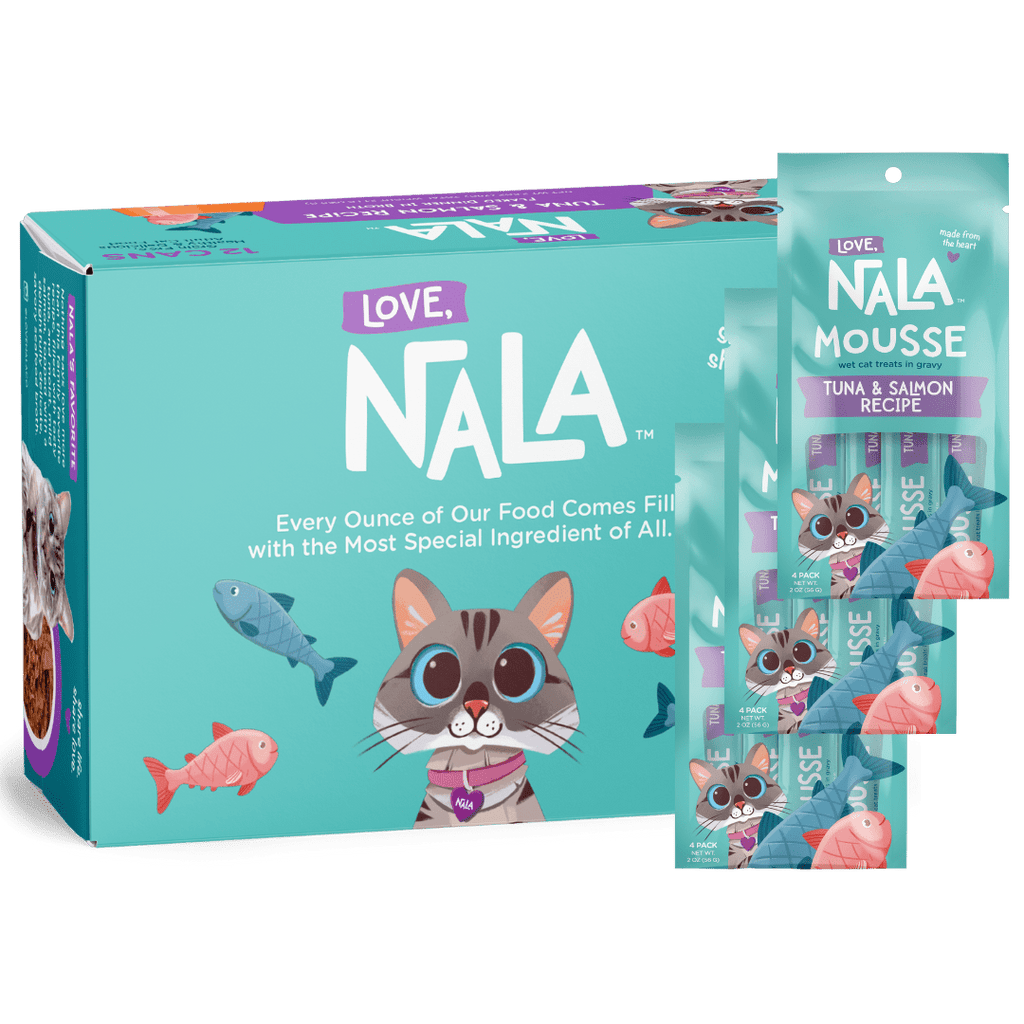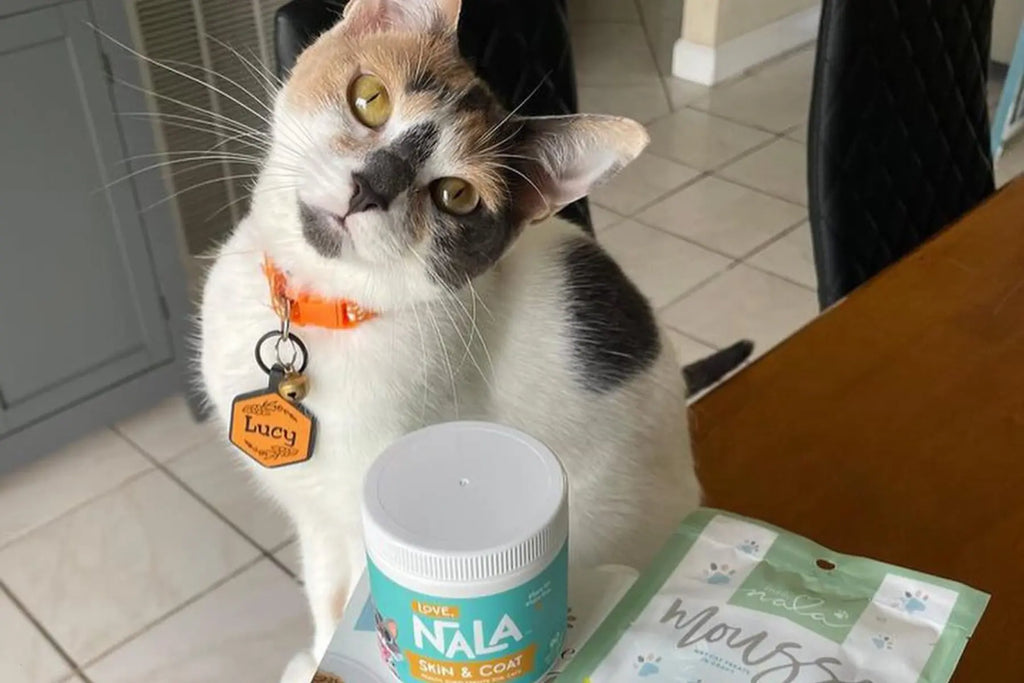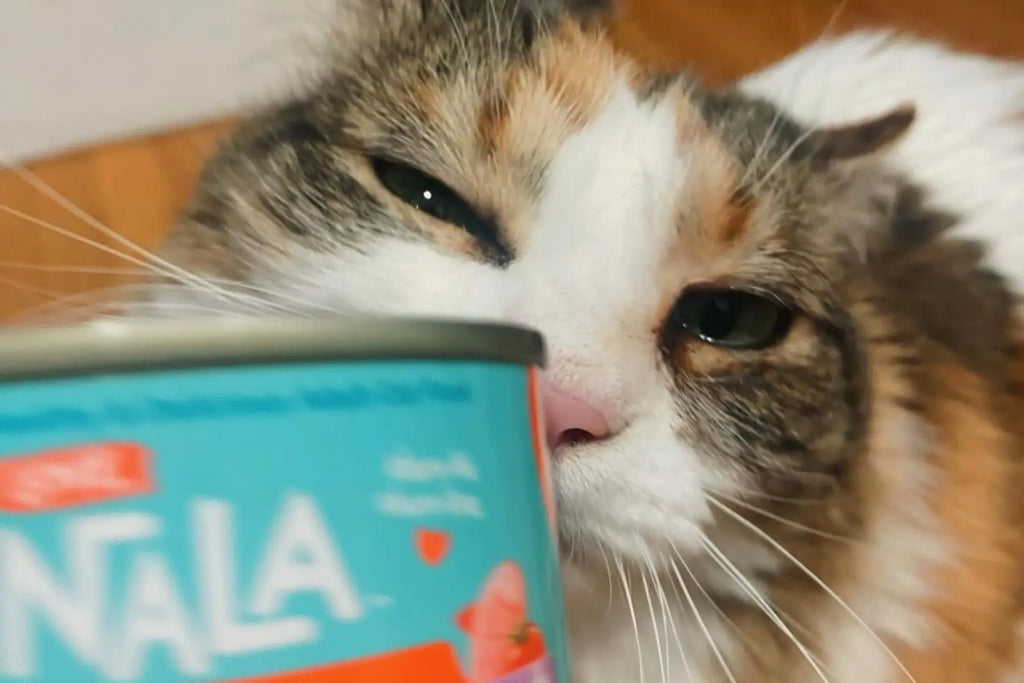Understanding the dietary needs of your feline companion is a crucial step toward ensuring its well-being and longevity. A well-balanced diet will not only keep your cat in good health, but it will also enhance its energy levels, maintain a healthy weight, and result in a shiny, smooth coat. Cat nutrition essentials are grounded in providing the right balance of nutrients, vitamins, and minerals necessary for a cat's daily activities and overall health. Knowledgeable choices in what to feed your cat can significantly impact its quality of life.
Cats are obligate carnivores, which means their diet primarily consists of meat. Unlike dogs and humans, cats require a higher proportion of protein and fat in their diet. The feline dietary needs are distinct and must be met with a well-thought-out diet plan. An understanding of these unique dietary requirements is essential for cat owners aiming to provide the best care for their furry companions. It’s important to remember that what works for other pets or even humans, may not be suitable for cats.

There are several misconceptions surrounding feline diets. Some people believe that cats should be fed a vegetarian or vegan diet, while others think a cat can thrive on a dog food diet. These misconceptions can lead to improper feeding practices, which, in turn, can result in nutrient deficiencies and serious health issues for cats. It's essential to debunk these myths and follow vet-approved cat dietary guidelines to ensure your cat's health and well-being.
Key Elements of Cat Nutrition Essentials
The Role of Proteins in a Cat's Diet
Protein is a crucial component of a healthy feline diet. It provides the essential amino acids necessary for the growth, maintenance, and repair of body tissues. Cats require a higher protein intake compared to many other pets due to their unique metabolic processes. High-quality protein sources like chicken, turkey, and fish are vital for maintaining healthy feline diets. Ensuring your cat gets adequate protein is a step towards promoting muscle strength and a healthy immune system.
Importance of Fats for Feline Health
Fats play a pivotal role in ensuring optimal feline nutrition, serving not just as a dense source of energy but also as facilitators for the absorption of fat-soluble vitamins vital to a cat's health. These nutrients are instrumental in maintaining a shiny coat and healthy skin, markers of a well-nourished cat. Among fats, essential fatty acids such as Omega-3 and Omega-6 stand out for their anti-inflammatory properties, essential in staving off diseases and ensuring the cat's body functions smoothly.
The significance of these fatty acids extends beyond mere disease prevention; they are core components in promoting heart health, enhancing cognitive function, and ensuring the reproductive system operates efficiently. The balance of these fats in a cat's diet cannot be overstated. Too little, and a cat might face nutritional deficiencies, too much, and there's a risk of obesity. The key lies in a balanced approach, integrating these fats in proportions that meet the cat’s energetic demands without tipping the scale. This balance is critical not only in maintaining an ideal weight but also in supporting various bodily functions that depend on these essential nutrients.
Understanding Cat Vitamin and Mineral Requirements
Vitamins and minerals play a crucial role in a cat’s health. They are involved in numerous physiological processes including bone formation, blood clotting, and immune response. Cat vitamin and mineral requirements need to be met through a balanced diet or supplements as recommended by a vet. Each vitamin and mineral has a specific role, and a deficiency or excess can lead to health issues. It's essential to follow vet guidelines to ensure your cat receives the right balance of vitamins and minerals.
Delving Deeper: Detailed Dietary Guidelines
Deciphering Cat Food Labels
Understanding the information on cat food labels is crucial for providing balanced meals for cats. Cat food labels contain a wealth of information but can be confusing. They include the list of ingredients, guaranteed analysis, feeding guidelines, and the nutritional adequacy statement. The ingredient list is arranged by weight, but be cautious as this can be misleading. The guaranteed analysis provides a minimum or maximum value of nutrients such as proteins, fats, and fiber, offering a glimpse into the nutritional value of the food. The nutritional adequacy statement is vital as it indicates whether the food provides complete and balanced nutrition according to the recognized cat dietary guidelines. Learning to read and understand cat food labels can significantly impact the nutritional value of the food you provide to your cat.
The Debate on Natural Diets for Felines
The conversation surrounding natural diets for felines has grown over the years, with many cat owners seeking more organic or natural dietary options for their pets. Natural diets often refer to homemade or raw diets that mimic the dietary habits of wild cats. Advocates argue that natural diets provide a range of benefits including better coat condition, reduced stool odor, and potential allergy relief. However, critics point out that natural diets can pose health risks due to bacterial contamination and may lack essential cat nutrients if not properly balanced. It's a complex topic that requires careful consideration and consultation with a veterinary nutritionist to ensure the health and safety of your cat.
Risks of Nutrient Deficiencies and Imbalances
A poorly balanced diet can lead to nutrient deficiencies and imbalances which in turn can result in serious health issues. For instance, a deficiency in taurine, an amino acid, can lead to heart disease in cats. Similarly, an imbalance in the calcium-to-phosphorus ratio can adversely affect bone health. It’s essential to adhere to vet-approved feeding recommendations for cats to avoid such issues. Nutrient imbalances can be avoided by providing a balanced diet that meets the cat's vitamin and mineral requirements, or through vet-approved supplements when necessary.
Structuring a Healthy Feline Diet
Building Balanced Meals for Cats
Creating balanced meals is fundamental to achieving optimal feline nutrition. A balanced meal should provide the right amounts of proteins, fats, carbohydrates, vitamins, and minerals essential for maintaining a cat’s health. This balance is crucial as an excess or deficiency of certain nutrients can lead to health issues. As emphasized before, too much fat can lead to obesity, while inadequate protein can result in muscle wasting. Ensuring a proper balance requires understanding the nutritional needs of your cat, and may require consultation with a veterinarian or a pet nutritionist.
Optimal Feline Nutrition: What Does it Look Like?
Optimal feline nutrition encompasses a diet that meets all the nutritional requirements of a cat, promoting health, vitality, and long life. It involves providing high-quality proteins, the right balance of fats, a variety of vitamins and minerals, and a limited amount of carbohydrates. A diet that aligns with a cat’s natural carnivorous inclinations yet is well-balanced to provide all essential nutrients, is ideal. This might include a mix of commercial cat foods, supplemented with certain fresh meats or other vet-approved food items, to ensure a well-rounded nutritional profile.

Common Ingredients to Avoid
The diet of a cat is fundamentally linked to its health and longevity, highlighting the importance of careful selection of ingredients in their meals. High-quality, nutrient-rich foods can enhance a cat’s quality of life, whereas certain ingredients may have adverse effects. To ensure the health and happiness of your feline companion, consider the following detailed recommendations when selecting their food:
- Avoid Cheap Fillers: Ingredients like corn and soy are commonly used in pet foods as economical ways to add bulk and calories. However, they offer minimal nutritional benefits to cats, who are obligate carnivores and require a diet rich in animal proteins. These fillers can be hard for cats to digest and may lead to obesity, allergies, and gastrointestinal problems. Opting for cat food that uses high-quality proteins as the primary ingredient, rather than fillers, can significantly contribute to the overall health and energy levels of your cat.
- Say No to Artificial Additives: Artificial colors, flavors, and preservatives are often added to pet food to enhance its appearance, taste, and shelf life. However, these chemicals can be harmful to cats, potentially leading to allergic reactions, behavioral issues, and long-term health problems such as cancer. Choosing cat food with natural ingredients and preserved using safe methods, like freezing or using natural preservatives (e.g., vitamin E), can help avoid these risks and support your cat’s health.
- Steer Clear of Meat By-products: Meat by-products in pet food often come from unspecified sources, which can include non-muscle parts of animals such as organs and bones. While not inherently harmful and can be nutritious, the quality and source of these by-products can be questionable, lacking the nutritional profile found in whole, named meats. Feeding your cat a diet with clearly identified, high-quality meat sources ensures they receive the essential nutrients they need for optimal health.
When selecting a diet for your cat, it’s important to look beyond the marketing and packaging to understand the quality and source of the ingredients. A diet free from cheap fillers, artificial additives, and questionable meat by-products is more likely to support your cat’s health, vitality, and longevity.
Practical Tips for Cat Owners
Feeding Recommendations for Cats: How Much and How Often?
The health and well-being of a cat are deeply influenced by their diet, which should be carefully managed to prevent issues such as obesity or malnutrition. The appropriate feeding regimen for a cat varies across different stages of their life, necessitating adjustments in the amount and frequency of food provided. These regimens are designed to match the nutritional needs dictated by their age, activity level, and overall health. The following outlines detailed feeding guidelines for cats at various life stages:
- Kittens: In their formative months, kittens require small, frequent meals that are rich in protein to support their rapid growth and development. Given their high energy needs and smaller stomach capacity, feeding them three to four times a day with a diet formulated specifically for kittens is ideal. This high-protein intake is crucial for building muscle, supporting organ development, and fueling their playful energy. Careful monitoring and adjustments to the feeding schedule may be needed as they grow, ensuring they receive the optimal nutrition for a healthy start in life.
- Adult Cats: As cats mature into adulthood, their metabolism stabilizes, and their growth requirements diminish, necessitating fewer daily meals. Most adult cats thrive on a routine of two to three meals per day, which helps maintain their energy levels throughout the day and prevents overeating. The amount of food required at this stage largely depends on the cat's size, activity level, and health. An adult cat’s diet should be balanced to support their overall health, providing all the necessary nutrients without excess calories that can lead to weight gain.
- Senior Cats: Aging cats often experience a decrease in activity and may develop various health issues that require dietary adjustments. Senior cats might benefit from diets lower in calories but rich in fiber and essential nutrients to maintain their health and manage weight. Additionally, softer foods or diets formulated for specific health concerns can address age-related dental issues or organ function decline. Feeding frequencies may remain similar to those of adult cats, but the food's composition should be carefully selected to support a senior cat's changing nutritional needs, often involving a vet's guidance for personalized diet planning.
Creating a feeding routine that aligns with your cat’s specific life stage and health requirements is paramount for their overall well-being. Tailoring the approach to feeding based on careful observation and professional advice can significantly contribute to a cat’s quality of life, ensuring they remain healthy, active, and happy.
Navigating Commercial Cat Food Options
With a plethora of commercial cat food options available, choosing the right one can be a daunting task for cat owners. The market is flooded with dry kibble, canned wet food, and even freeze-dried and dehydrated products. Each type has its own set of benefits and drawbacks. For instance, wet food is often preferred for its hydration benefits and closer resemblance to a natural diet for felines, while dry kibble can be more convenient and better for dental health. When selecting commercial cat food, it's essential to consider the ingredient list, and nutritional adequacy, and consult with a vet to ensure it meets the cat nutrition essentials for your feline.
Considering Homemade Meals: Pros and Cons
Preparing homemade meals for your cat can be a rewarding yet challenging endeavor. Homemade diets allow for control over the ingredients and the quality of the food your cat consumes. However, they require a deep understanding of cat dietary guidelines to ensure they meet the nutritional requirements of your feline. The major concern with homemade diets is the potential for nutritional imbalances, which could lead to health issues over time. It's advisable to work closely with a veterinarian or a veterinary nutritionist when considering homemade meals, to ensure the diet is well-balanced and suitable for your cat.
The Distinctiveness of Feline Dietary Needs
Comparing the Feline Diet to Other Pets
The distinctiveness of feline dietary needs becomes apparent when compared to other pets like dogs. Cats are obligate carnivores, requiring a higher protein intake, while dogs are omnivores with a more varied dietary tolerance. Unlike dogs, cats have a higher need for certain amino acids like taurine and arginine, which are found in meat. They also have a different vitamin and mineral requirement profile. Understanding these distinct dietary needs is crucial for providing a diet that supports the health and well-being of your cat.
Adapting to a Cat's Life Stages and Health Conditions
Cats have varying nutritional needs at different life stages and under different health conditions. Kittens require a diet rich in protein to support their rapid growth, while senior cats may benefit from a diet lower in calories but rich in antioxidants and joint-supporting nutrients. Moreover, cats with health conditions like diabetes or kidney disease will have specific dietary needs. Adhering to cat dietary guidelines that correspond to your cat’s life stage and health condition is crucial for promoting optimal health and longevity.
Addressing Allergies and Sensitivities
Cats can develop allergies or sensitivities to certain foods, which can manifest in symptoms like itching, digestive upset, or respiratory issues. Identifying and addressing these allergies or sensitivities is an essential aspect of promoting healthy feline diets. This may involve a process of elimination to identify problematic ingredients and subsequently avoid those ingredients in the cat's diet. Consulting with a vet can provide valuable insights and guidance in managing food allergies and sensitivities, ensuring your cat maintains a nutritious and comfortable dietary regimen.

Empowering Informed Feeding Choices
The journey towards ensuring optimal nutrition for your cat is a significant one, filled with both learning and rewarding experiences. Nutrition forms the cornerstone of your cat’s overall health, influencing their energy levels, immune system, and even their lifespan. By adhering to the cat nutrition essentials and working closely with a veterinarian, you pave the way for a healthy, vibrant life for your feline companion. The insights gained through understanding feline nutrition are instrumental in making informed feeding choices that significantly enhance the quality of life for your cat.
Every cat owner embarks on a unique journey filled with discoveries about their feline friend's dietary preferences and nutritional needs. This journey, though challenging at times, is incredibly rewarding as you observe the positive impacts of a well-balanced diet on your cat’s health and well-being. Engaging with cat dietary guidelines, exploring various dietary options, and continuously learning about feline dietary needs are steps toward nurturing a healthy and happy cat. Your commitment to understanding and providing optimal nutrition is a testament to the special bond between you and your feline companion.
The journey towards understanding and fulfilling your cat's dietary needs is a rewarding endeavor that significantly contributes to their health, happiness, and longevity. Nutrition is the foundation of good health, affecting everything from your cat's energy levels and immune function to their physical appearance and life expectancy. By making informed choices about your cat's diet—avoiding harmful ingredients while focusing on high-quality proteins, essential fats, and balanced vitamins and minerals—you provide your feline friend with the best possible care. Remember, a diet that closely aligns with their natural nutritional requirements not only prevents common health issues but also supports their well-being at every life stage. Ultimately, the effort you put into understanding and implementing the principles of feline nutrition will be reflected in your cat's vitality and the strength of the bond you share. This commitment to their diet underscores the depth of your relationship, showcasing the love and care that define the human-animal bond.




















